When your ideal customer searches the internet, having your website pages not included in search results can be a big problem. What good is your website page if they can't find it?
How do I know if search engines will include my website pages in search results?
Search engines must index your website pages for them to appear in search results.
Why should my business care about our website being indexed on Search Engines?
Indexing your business website pages on search engines helps improve your online visibility, reach a broader audience, and drive more traffic.
Increased Visibility: When search engines like Google index your website pages, they become part of the search engine's database. This means that when users search for relevant keywords or phrases related to your business, your pages are more likely to appear in the search results, increasing your brand's visibility.
Attracting Organic Traffic: Indexing enables your website to attract organic traffic from users actively searching for information related to your products or services. Organic traffic is often highly targeted and more likely to convert into customers or clients.
Business Credibility: A website that appears in search engine results is often perceived as more credible and trustworthy by users. People tend to trust information provided by search engines, and having your site indexed can contribute to building credibility for your business.
Competitive Advantage: If your competitors have their websites indexed and you don't, you may lose potential customers to them. Being indexed ensures your business remains competitive online and is visible to users actively searching for products or services like yours.
Wider Audience Reach: Search engines have a global reach, allowing your business to be discovered by a wider audience beyond your immediate geographic location. This is particularly important if you offer products or services that can be accessed or shipped globally.
Marketing and Brand Exposure: Indexing is fundamental to online marketing. It ensures that your marketing efforts, such as content creation, promotions, and advertising, are supported by a solid online presence, making it easier for potential customers to find and engage with your brand.
SEO (Search Engine Optimization): Indexing is a crucial aspect of SEO. Search engines use complex algorithms to determine the relevance and quality of web pages. Indexing your business website is a prerequisite for implementing various SEO strategies to improve your website's ranking in search results.
Analytics and Insights: Indexing your pages lets you gather valuable insights through tools like Google Analytics. You can track user behavior, analyze traffic sources, and make data-driven decisions to improve your website's performance.
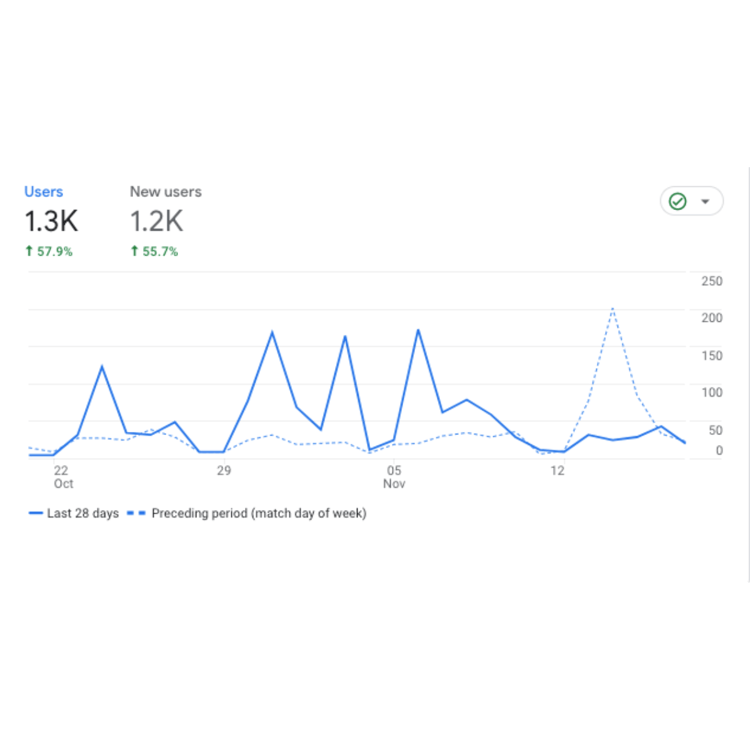
What is the first step to having my website appear in search results?
Submit Sitemaps to Search Engines
Search engines utilize sitemaps as a roadmap to navigate the vast expanse of the internet. When your website pages are missing from search results, it's essential to verify that your sitemap has been submitted and indexed by search engines. A properly submitted sitemap provides search engines with a comprehensive list of your website's pages, making indexing and ranking your content easier.
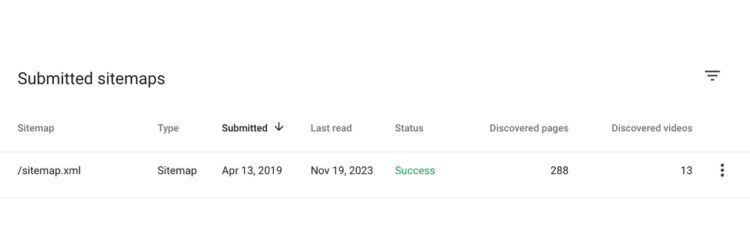
Where do I find my website sitemap?
If you use WordPress, the Yoast SEO tool will do this for you.
How to enable and view the XML sitemap in Yoast SEO
Your Squarespace site comes with a site map using the .xml format, so you don't need to create one manually. It includes the URLs for all pages on your site and image metadata for SEO-friendly indexing. Site maps and search engines: A site map tells search engines what pages are available for crawling.
Your sitemap manages the content shown to search engines for each of your domains hosted on HubSpot. Sitemaps help search engine web crawlers determine the structure of your site so they can crawl it more intelligently.
View and edit your HubSpot-hosted domain sitemap.
Why your website pages aren’t indexed
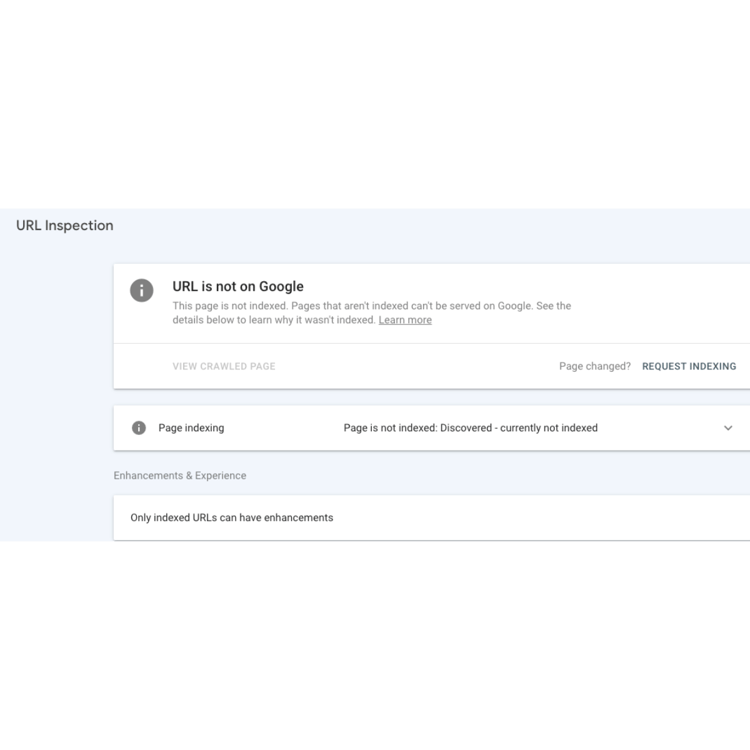
Pages that aren’t indexed can’t be served on Google. Some of the most common reasons your website pages are not indexed and available in search results are listed below.
Discovered - Currently Not Indexed
Crawled - Currently Not Indexed
Excluded by ‘noindex’ Tag
Alternate Page with Proper Canonical Tag
Website, Page with Redirect, Not Found (404)
Wait a minute.
Shouldn't my marketing or SEO agency take care of this for me?
YES, they should!
NEED HELP WITH GOOGLE SEARCH CONSOLE?
Discovered - Currently Not Indexed
The "Discovered - currently not indexed" status is a common occurrence that often leaves website owners perplexed. This status indicates that the search engine has found the page during its crawling process but still needs to add it to its index. This delay could be due to various reasons, such as low content quality, duplicate content issues, or technical glitches.
To resolve this, could you focus on enhancing the quality and uniqueness of your content? Update your website with relevant information and make sure each page serves a distinct purpose. Are you improving the page's metadata, including titles and meta descriptions, to make it more appealing to search engines?
Crawled - Currently Not Indexed
Like the "Discovered - currently not indexed" status, "Crawled - currently not indexed" indicates that the search engine has explored the page during its crawling process but has chosen not to include it in the index. This may be due to issues like poor website performance, slow loading times, or issues with the server.
To address this, optimize your website's performance by compressing images, leveraging browser caching, and investing in a reliable hosting provider. Ensure that your website is accessible to search engine bots, allowing them to crawl your pages without encountering obstacles.
Excluded by ‘noindex’ Tag
One of the most straightforward reasons for a page not appearing in search results is the presence of a 'noindex' tag. This tag instructs search engines not to index a particular page, rendering it invisible in search results. While it serves a purpose, such as keeping private or duplicate content out of search engine indexes, it can inadvertently affect important pages.
Review your website's meta tags, specifically checking for the 'noindex' tag. If you find it on pages that should be visible in search results, remove the tag to allow search engines to index and display the content.
Alternate Page with Proper Canonical Tag
Canonical tags indicate the preferred version of a page, especially when dealing with duplicate content issues. If an alternate page is specified in the canonical tag, search engines may prioritize indexing that page over others, leaving some content unnoticed.
Inspect your canonical tags to represent each page’s primary version accurately. Adjust these tags as needed to guide search engines towards the correct pages for indexing.
Website, Page with Redirect, Not Found (404)
The dreaded 404 error occurs when a page is not found on the server. This can happen for various reasons, including broken links, deleted pages, or server misconfigurations. If search engines encounter 404 errors while crawling your website, they may exclude those pages from the index.
Perform regular checks on your website to identify and fix broken links. Implement proper redirects for pages that have been moved or deleted, ensuring a seamless user experience and preventing exclusion from search results.
How can I make my website pages appear in search results?
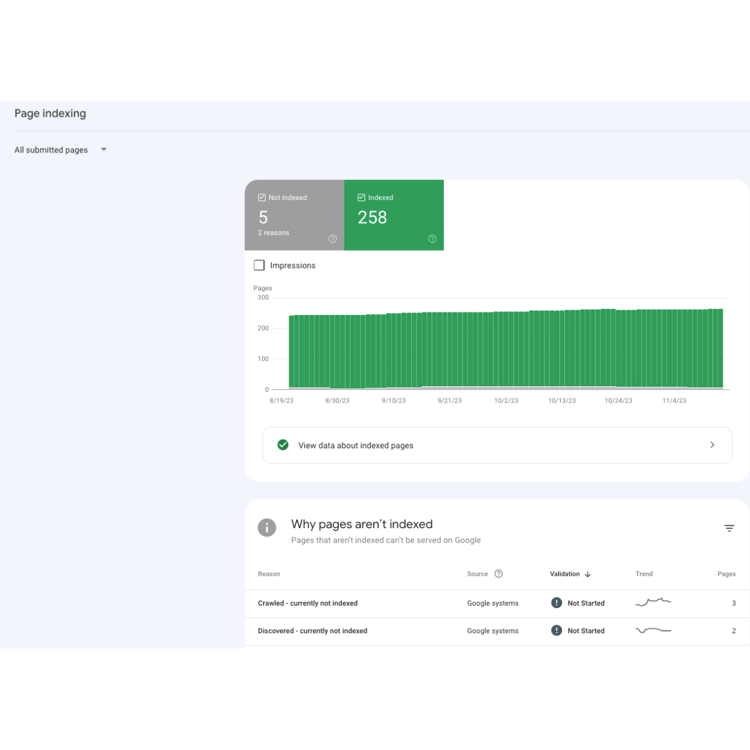
The URL Inspection Process and Manual Page Submission
Google Search Console provides a valuable tool for website owners to troubleshoot and address indexing issues – the URL Inspection tool. This tool lets you see how Googlebot views a specific page, providing insights into indexing status, crawling issues, and more.
To manually submit a page for indexing using Google Search Console:
- Navigate to the URL Inspection tool.
- Enter the URL of the page you want to index.
- Review the indexing status and any issues reported.
- If necessary, you can request indexing to prompt search engines to reevaluate the page.
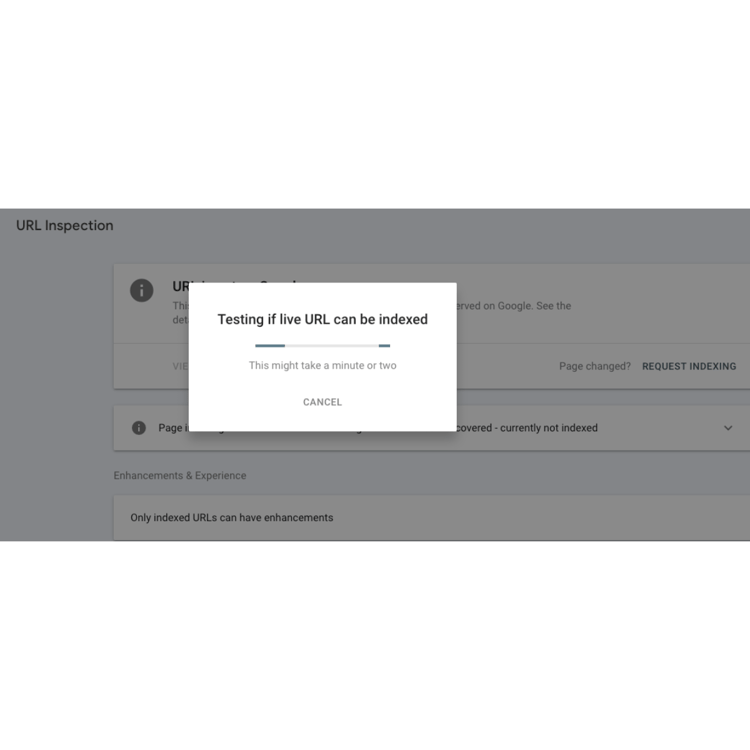

No comments:
Post a Comment